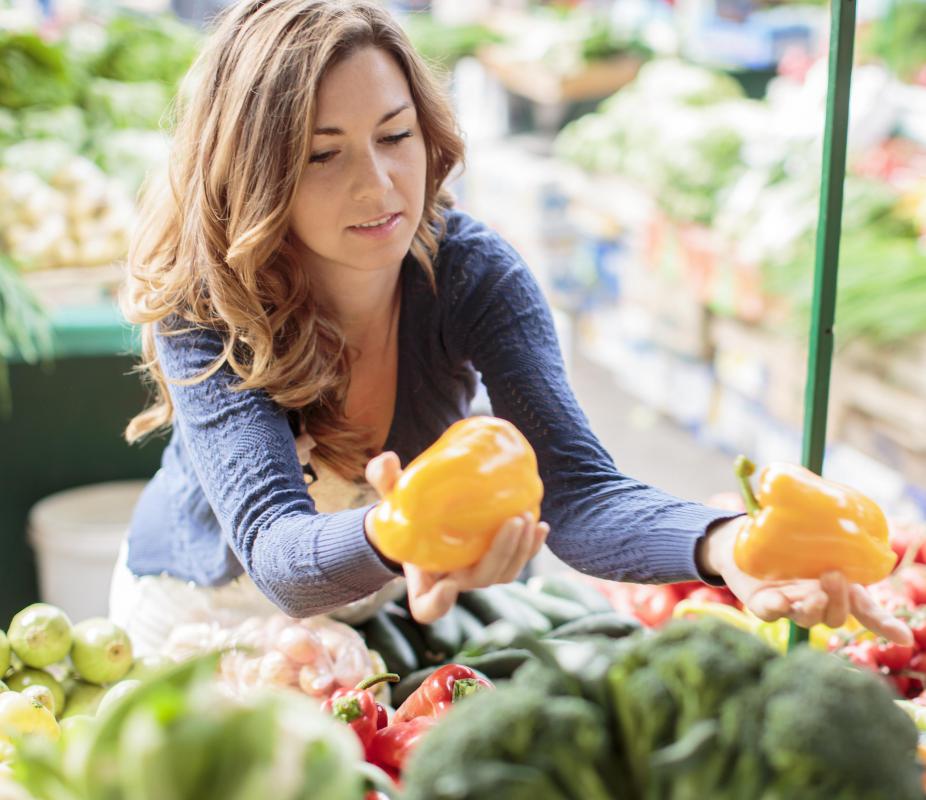At WiseGEEK, we're committed to delivering accurate, trustworthy information. Our expert-authored content is rigorously fact-checked and sourced from credible authorities. Discover how we uphold the highest standards in providing you with reliable knowledge.
What is the Difference Between Organic and Free Range Food Labels?
When shopping for food, just about anyone can be overwhelmed by the variety of options available. Whether your chicken says free range or organic, the reality can be something altogether different. So here's how it all breaks down.
At the top of the list are organic foods. Organic food really does mean organic. They follow strict standards and are inspected to make sure they meet those standards. Food that is labeled organic is free of most pesticides, artificial ingredients, bioengineering, growth hormones, and antibiotics. Foods labeled organic do not have more than 5% non-organic ingredients in them. Foods labeled 100% organic are made up completely of organic ingredients. Foods containing less than 70% organic ingredients can list the organic ingredients but cannot claim to be organic.

The most confusing label just might be free range foods. This label is not an equivalent to organic. There is no oversight on this label and it can mean that the animal in question was allowed into an open area just once in its life. This label is supposed to mean that the meat is leaner and more nutrient rich because the animals were able to get exercise. However, this is not often practiced in the meat industry. If you're looking for truly free range meats find a local farmer or agricultural association. You may be able to view the farm and see for yourself the living conditions of the stock animals that end up on your table.

Grain fed or grass fed is another label that is deceiving. Do not confuse this label with organic, again, there is no oversight on this label. Truly, grain fed and grass-fed stock is, in fact, better for you. They are richer in omega-3 fatty acids and leaner meats. The label, however, can mean that once in the animal's life they were grain or grass fed. It does not mean that the lifetime diet of the animal was grain or grass.

Labels that say no hormones are only appropriate for beef. There is a ban on using hormones with pork and chicken. But again, there is no oversight and anyone can make this claim. The same holds true for products sold as 'raised without antibiotics'.
All natural foods simply mean that no artificial colors, preservatives, or ingredients were used. It does not mean organic. There are a variety of other labels that manufacturers will use that mean little or nothing at all. Wholesome, low fat, trans-fat free, and cholesterol free are more examples of deceptive labeling practices. Wholesome means nothing at all. Low fat is a relative piece of information and may be higher in fat than what you might be expecting. Tran-fat free products can have up to half a gram per serving of trans-fats. Cholesterol free products are plentiful but some studies show that the processed foods that carry these labels can have a negative impact on your cholesterol without having any cholesterol in them.
AS FEATURED ON:
AS FEATURED ON:













Discussion Comments
@artlover--Do some investigating in your local area, you might be surprised to find a local farm, depending on how far you are willing to drive.
If not, there are several organic farms that have websites and will sell in bulk. You need to research to make sure they are a certified organic farm.
If someone you speak to doesn't want to answer this question or show you proof of the certification, go to the next one on your list. The farmers that are truly organic love to show it off, they are proud of it.
Wow! Thanks for the eye-opening information! I thought I was buying good meat when buying grass-fed or free range. I had no idea it could mean once in the lifetime of the animal!
So, organic is obviously the best choice. If you do not live somewhere where there is a local farm or organic store, how can I buy organic meats? And is it less expensive to buy in bulk or does that matter?
Post your comments